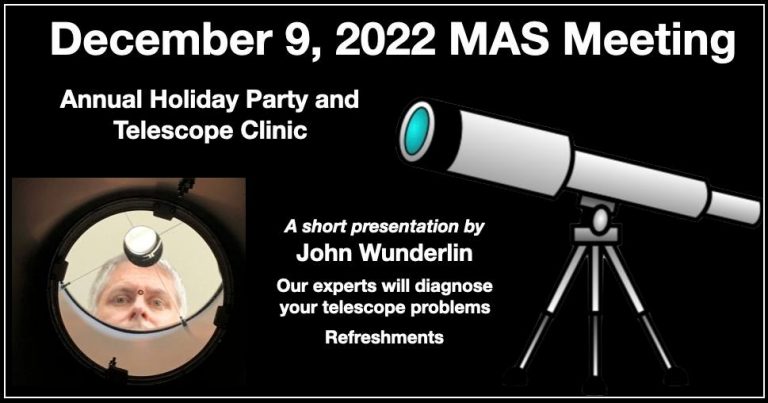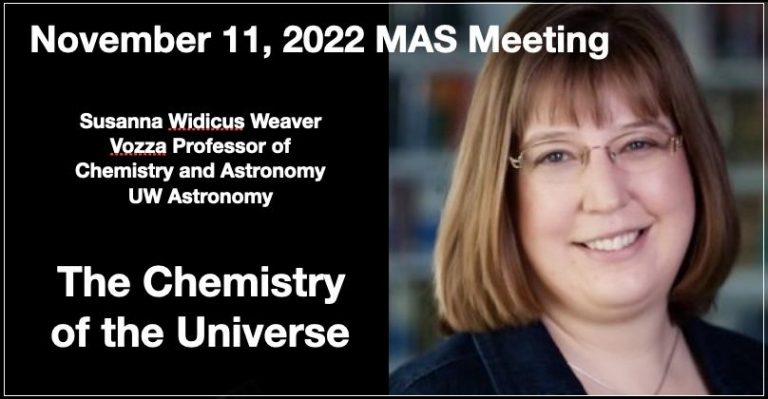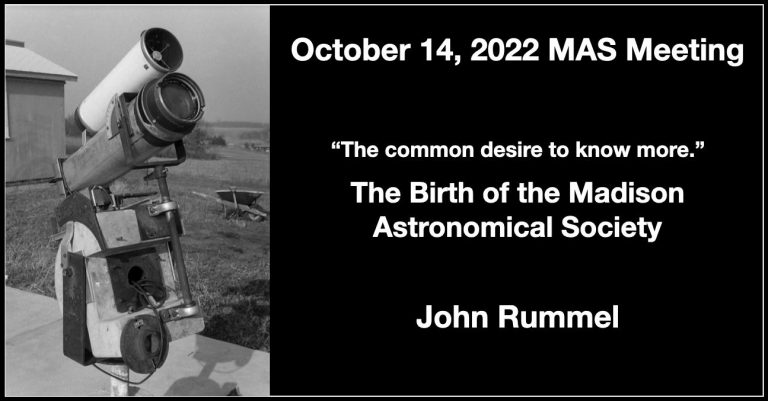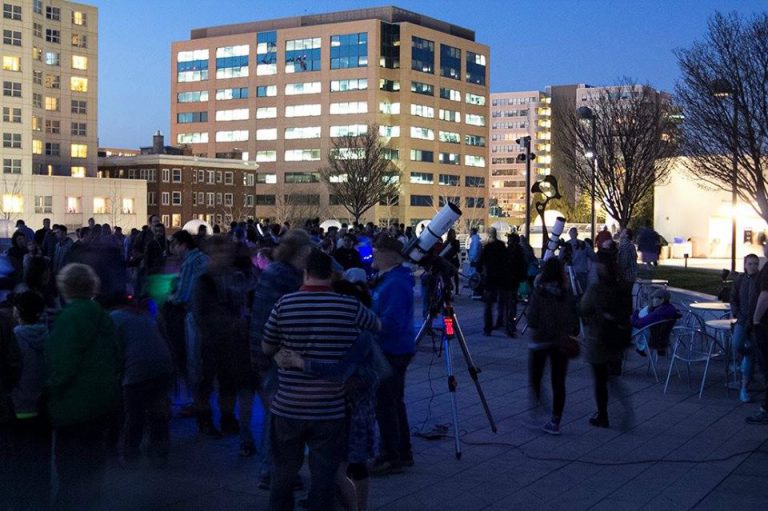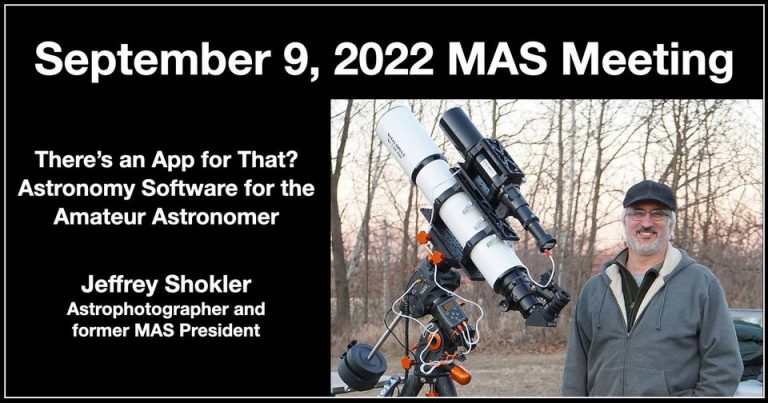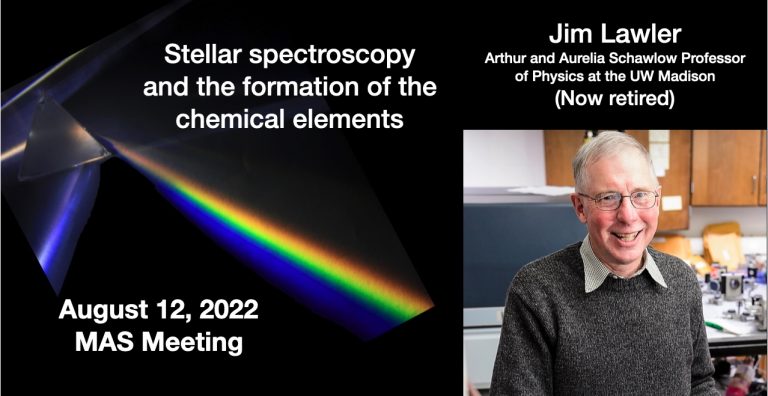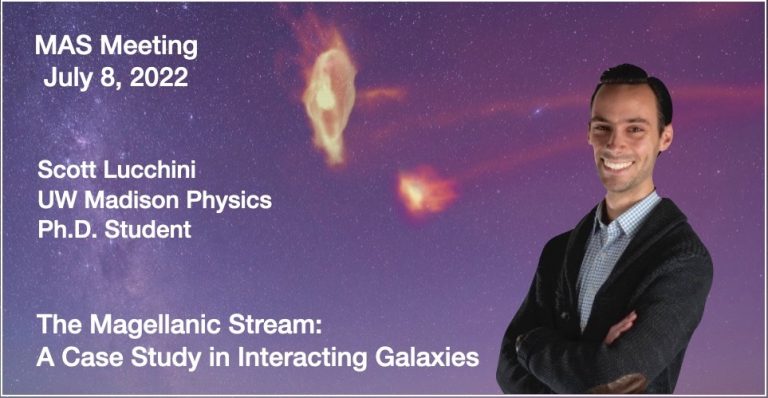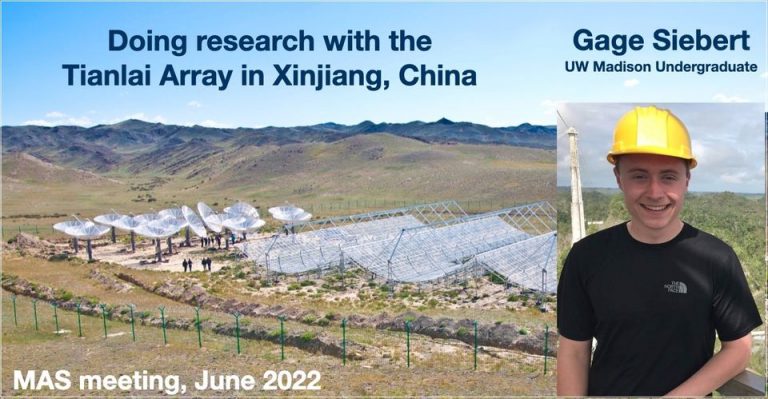Friday January 13, 2023, 7:00pm – UW Space Place
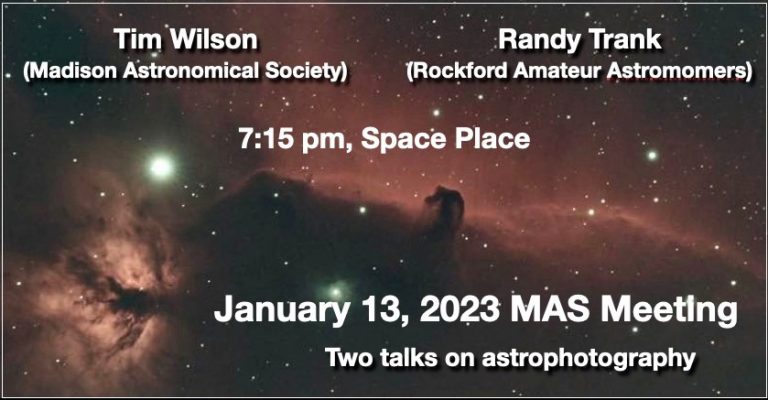
The January MAS meeting will feature a focus on astrophotography with presentations by two experienced practitioners:
Randy Trank on “Lucky Imaging and the Moon”
“Lucky Imaging” is a phrase used for certain types of astrophotography so I’ll explain that and show an example by processing a lunar photo.
Randy’s background:
Randy became interested in astronomy under the dark skies of Lake Ripley when he was 12 with an Edmund Scientific scope. He loved the Apollo missions. Randy has dabbled in astrophotography for 50 years, avoiding the moon. He is now returning to his lunar roots and wishing he hadn’t avoided the moon for so long! Randy is a member of the Rockford Amateur Astronomers.
Tim Wilson on “Data collection, Organization, and Preprocessing”
Tim will cover: Light Frames: Inspection for bad images, planes, satellites, movement of mount, Dark Frames: Same temperature and Exposure Time,
Flat Frames: Different methods, White Screen or T-Shirt Method, also touch on flat frames acquisition by using APT or SGP software, Bias Frames, Deep Sky Stacker: Loading files, basic settings, registration, image scores and stacking.
Tim’s background:
Tim is a retired CNC and Manual Machinist; retired in 2016 from the Savannah Company in Waunakee, WI. Tim has done visual astronomy for the las 40 years, but finally tried his hand at astrophotography in 2014 and has been doing it ever since. Some of his other interests are Electronics, 3D Printing, CNC Router, CO2 laser cutting and Guitar. He has a love of science and technology and enjoys reading books on physics and astronomy. Tim is a long-time member of the MAS.
This meeting will take place in-person at our usual Space Place classroom location. It will also be streamed live to our YouTube channel at https://www.youtube.com/@madisonastronomicalsociety
